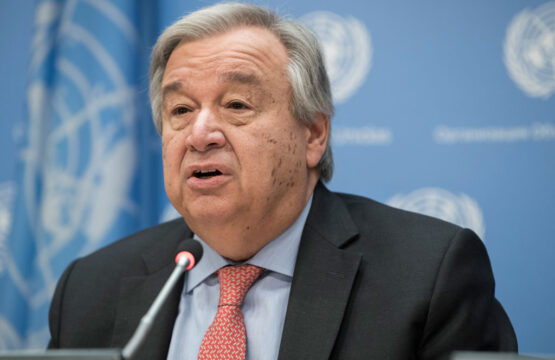Breast cancer is not only a physically taxing illness but also a profoundly emotional and psychological challenge. Among the numerous hurdles breast cancer patients face, one of the most significant yet often under-discussed is depression during chemotherapy. As research and clinical data have shown, the emotional toll of cancer treatment can exacerbate physical suffering and even impact treatment outcomes. This article explores the prevalence of depression among breast cancer patients undergoing chemotherapy, real-world facts and figures, and how this mental health challenge influences overall well-being.
Prevalence of Depression During Breast Cancer Treatment
Breast cancer is the most common cancer among women globally, with an estimated 2.3 million new cases reported in 2020 alone. Chemotherapy, one of the most commonly used treatments for breast cancer, has been associated with significant side effects, including fatigue, nausea, hair loss, and cognitive impairment, all of which contribute to emotional distress.
According to a study published in The Lancet Psychiatry, approximately 30-35% of breast cancer patients undergoing chemotherapy develop clinical depression at some stage during treatment. A similar study in the Journal of Clinical Oncology found that 24-28% of breast cancer patients experience moderate to severe depressive symptoms during chemotherapy. Depression in cancer patients often goes undiagnosed, as symptoms like fatigue and loss of interest overlap with the physical effects of chemotherapy.
The Psychological Toll of Chemotherapy
Chemotherapy, while effective at targeting cancer cells, also causes significant damage to healthy cells, leading to physical discomfort and severe fatigue. This physical exhaustion is one of the primary contributors to depression. Additionally, chemotherapy-induced hormonal changes, particularly for women with hormone receptor-positive breast cancer, can lead to emotional instability, exacerbating feelings of sadness, hopelessness, and anxiety.
According to the National Cancer Institute, depression is a severe complication in cancer patients because it can interfere with their ability to continue treatment and recovery. Patients undergoing chemotherapy may struggle with feelings of hopelessness and decreased motivation to maintain self-care routines, attend treatments, or adhere to their prescribed medications. Furthermore, studies have found that the mortality rate is 39% higher in cancer patients suffering from untreated depression compared to those without depression.
Factors Contributing to Depression
Several factors contribute to the high rates of depression in breast cancer patients during chemotherapy:
- Physical Side Effects of Chemotherapy: The physical symptoms of chemotherapy, such as hair loss, nausea, fatigue, and cognitive dysfunction, can take an emotional toll on patients. A sense of loss of control over one’s body and appearance contributes to self-esteem issues and feelings of sadness.
- Fear of Recurrence: Many breast cancer survivors experience anxiety and fear of cancer returning, even after successful treatment. This fear can heighten depressive symptoms, especially during the grueling process of chemotherapy.
- Hormonal Changes: Chemotherapy often leads to hormonal fluctuations, particularly in pre-menopausal women. Studies have shown that lower estrogen levels, a common side effect of chemotherapy, can increase the risk of depression.
- Social Isolation: The physical toll of chemotherapy, along with the emotional burden, can lead patients to withdraw from social interactions, heightening feelings of loneliness and isolation. Social support has been shown to be a critical factor in emotional resilience, and its absence can aggravate depression.
Treatment Challenges
The experience of chemotherapy brings various challenges that worsen the emotional and psychological state of breast cancer patients:
- Side effects of chemotherapy: These include nausea, diarrhea, post-chemo arthritis, hair loss, and fatigue, all of which add to the emotional distress.
- Surgical scars and mastectomy-related feelings of loss: The physical changes from mastectomies can lead to body image issues and feelings of grief.
- Anxiety from radiation therapy: Increased anxiety and discomfort during radiation therapy can compound the stress of ongoing treatment.
- Family neglect and strained relationships: Some women experience neglect from family members regarding their pain, leading to marital conflicts, divorce, or separation.
- Household burdens: Domestic responsibilities and caregiving duties often continue during treatment, increasing the emotional and physical strain on patients.
Psychological Burden and Mental Health Struggles
- Financial strain and social stigma: These contribute to common mental health issues such as depression, anxiety, and isolation, as patients grapple with the costs of treatment and social misconceptions about cancer.
- Emotional distress: Patients frequently experience fear, grief, frustration, and guilt, feeling like a burden to their families. These emotions can significantly impact their overall mental health.
Impact of Depression on Treatment Outcomes
Depression during chemotherapy not only affects mental health but can also have profound effects on the physical treatment outcomes for breast cancer patients:
- Reduced treatment adherence: Depressed patients are less likely to stick to chemotherapy schedules, which compromises the effectiveness of the treatment. The Journal of Psychosomatic Research found that patients with depression are 40% more likely to miss or delay chemotherapy appointments.
- Poorer survival rates: Untreated depression has been linked to higher mortality rates. According to the British Journal of Cancer, breast cancer patients with depression are twice as likely to experience early mortality compared to those without depression, potentially due to reduced adherence to treatment, poor nutrition, and lower motivation to engage in supportive therapies.
Impact of Depression on Treatment Outcomes
Depression during chemotherapy is not only a mental health issue; it can also have profound effects on the physical treatment outcomes for breast cancer patients. Depressed patients are less likely to adhere to chemotherapy schedules, which compromises the effectiveness of the treatment. According to the Journal of Psychosomatic Research, patients with depression are 40% more likely to miss or delay chemotherapy appointments, reducing the efficacy of the treatment.
Moreover, untreated depression has been linked to poorer survival rates. A study from the British Journal of Cancer found that breast cancer patients with depression were twice as likely to experience early mortality compared to those without depression. The reason for this could be multifactorial, including reduced adherence to treatment, poor nutrition, and lower motivation to engage in physical activity or supportive therapies.
Also Read: Breaking the Stigma: Promoting Mental Health Awareness and Advocacy
Addressing Depression in Breast Cancer Patients
The psychological well-being of breast cancer patients is crucial for holistic treatment. Addressing depression during chemotherapy requires a multifaceted approach involving both medical and psychosocial interventions.
- Screening for Depression: Healthcare providers should conduct regular screenings for depression using validated tools such as the Hospital Anxiety and Depression Scale (HADS) or the Patient Health Questionnaire-9 (PHQ-9). Early detection of depressive symptoms can lead to timely intervention.
- Psychotherapy and Counseling: Cognitive-behavioral therapy (CBT) and other forms of counseling have proven to be effective in helping patients cope with the emotional burden of chemotherapy. Therapy can offer strategies for managing stress, reducing negative thoughts, and improving emotional resilience.
- Medication: In some cases, antidepressants may be prescribed alongside chemotherapy to help manage clinical depression. Selective serotonin reuptake inhibitors (SSRIs) are commonly used, though careful monitoring is needed to avoid interactions with cancer treatments.
- Support Groups: Peer support from other breast cancer patients or survivors can provide emotional validation and reduce feelings of isolation. Support groups, both in-person and online, are often therapeutic for patients dealing with depression during chemotherapy.
- Exercise and Nutrition: Physical activity and a balanced diet can significantly improve mood and energy levels. A study in the Journal of Clinical Oncology highlighted that patients who engaged in moderate exercise had a 25% reduction in depressive symptoms compared to those who did not.
Conclusion
Depression during chemotherapy for breast cancer is a pervasive but often overlooked issue that demands attention. With up to one-third of patients affected, the emotional well-being of individuals undergoing cancer treatment must be prioritized alongside their physical care. Addressing depression not only enhances quality of life but can also improve treatment adherence and survival rates. Through early detection, psychological support, and holistic care, breast cancer patients can navigate the challenges of chemotherapy with better emotional and physical health outcomes.
International Relations Scholar interested in National Security strategies, with a good focus on Geo-Politics, Foreign Policy, and Public & Cultural Diplomacy.







